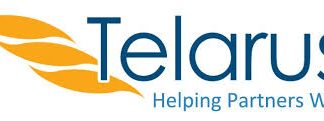Millennials now comprise the largest percentage of the U.S. workforce, and their expectations when it comes to technology are starkly different compared to previous generations.
That’s according to a survey from Canon U.S.A. led by IDC analyst Chris Chute, which looked at how the customization and mobility found in today’s consumer technology have been conditioning digital natives to expect the same options when it comes to business IT.
IDC research shows that U.S. mid-market adoption of Microsoft Office 365 grew over 60 percent in one year, from 30 percent to 50 percent adoption between 2014 to and 2015. In another example of how companies are re-prioritizing IT decision-making, Chute’s research found that millennial-led firms are 25 percent more likely to be deploying software as-a-service (SaaS) over their peers, and over 50 percent more likely to be deploying SaaS versions of travel booking, invoicing, payroll and financial management software.
“Millennials have had life-long experiences with consumer technology. When it comes to work, they expect their devices and apps be mobile-first and customizable and meet them on their own terms, regardless of location,” said Chute. “Mobility is essential, and cloud solutions are only going to become more the norm, so it’s clear that businesses need to adapt to this changing environment to remain competitive in 2017 and beyond.”
“The millennial generation is impacting the way we work and the technology we use in fascinating ways,” said Patricia Ames, president and analyst, BPO Media. “Their penchant for mobile access, collaboration, and open and transparent processes and communication have forced enterprise IT environments to abandon their silos and create efficient and more effective workflows for the modern office workers.”
During the panel discussion, Ames noted that creativity is essential for business and these younger workers are proof new habits and ideas can change a whole business landscape. They take mobility as a given, and have no qualms about being “always on” but also expect to use technology as they have grown accustomed to, personalized to their individual technology preferences.
RELATED: Most Businesses to Increase IoT Spending in 2017










